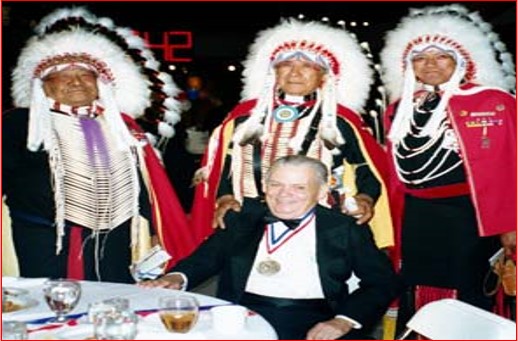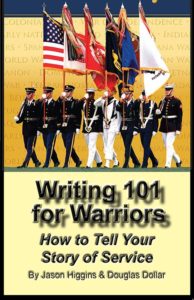
Based on the veteran interviews you and your group conduct, you will want to preserve these stories in book or other form for your community and Oklahoma. The OKMHF will help you publish and disseminate the information. All interviews should be preserved, to begin with by submitting them to the OKMHF Honors Campaign program in digital video or text form.
Also, the stories of one or more veterans might be provided as manuscripts to local libraries or families, or even published in book form and offered through retailers such as local bookstores or online through Amazon.com and other sites. Examples include:
Basic Veterans’ Memoirs: The basic memoir may consist of either a video or voice recording, or preferably a word-processing document. In either case appropriate related photos should be included, to include one of the student interviewer and the veteran. As opposed to a book-length memoir, the basic veteran memoir may simply comprise responses to the recommended, or another, questionnaire, with no effort at further organization.
 Book-length Veterans’ Memoirs: If you encounter a veteran who is interested in writing his military experiences as a work more substantial than what is covered by your interview, we offer the book, Writing 101 for Warriors: How to Tell Your Story of Service, free to share with the veteran. In this case, you are urged to continue working with the veteran and help carry the project to its completion as a published title as an Honors Campaign project. Your involvement will be a motivator for the veteran, and you can be a source of technical support via the campaign you’ve started. For the veteran, simply knowing the writing effort will definitely be published at no expense to her or him, or you, should add incentive. Unlike the basic interview, the book-length memoire should be organized into a logical story line, perhaps chronologically, or by a thematic approach. You may download a Rich Text 6×9-inch book template here: Honors Campaign Formatted Template – 6 x 9
Book-length Veterans’ Memoirs: If you encounter a veteran who is interested in writing his military experiences as a work more substantial than what is covered by your interview, we offer the book, Writing 101 for Warriors: How to Tell Your Story of Service, free to share with the veteran. In this case, you are urged to continue working with the veteran and help carry the project to its completion as a published title as an Honors Campaign project. Your involvement will be a motivator for the veteran, and you can be a source of technical support via the campaign you’ve started. For the veteran, simply knowing the writing effort will definitely be published at no expense to her or him, or you, should add incentive. Unlike the basic interview, the book-length memoire should be organized into a logical story line, perhaps chronologically, or by a thematic approach. You may download a Rich Text 6×9-inch book template here: Honors Campaign Formatted Template – 6 x 9
Community veterans’ histories/profiles: If enough stories of local veterans are compiled in your project, you might decide to publish a collection for your community in book form; and, as before, offer the title in local bookstores and online. The work might include a history of your community’s support of military service over the years. Remember, the format and amount of space given to each veteran’s story will depend on the number of veterans included in the book.
Beyond Our State to National Exposure: As stated earlier in this book, the questionnaire suggested for an Honors Campaign is based on the US Veterans History Project of the Library of Congress, https://www.loc.gov/vets/ whose site may be visited for help with the interview process. The Veterans History Project of the American Folklife Center collects, preserves, and makes accessible the personal accounts of American war veterans so that future generations may hear directly from veterans and better understand the realities of war. Since you are going to the effort of interviewing one or more veterans through your Honors Campaign, you should consider investing in the extra effort of configuring and submitting your veteran’s story to the Library of Congress effort also. You will receive extra points toward student recognition when you do.
Suggested Format: Here is a suggested format for a basic veteran manuscript to be provided to libraries or, when appropriate, published in a collection of veteran interviews.
Title of Interview (for example, “The Untold Story of Jane Doe: A Lady Marine During WWII”)
- Photo of Veteran with Student
- Title of Honors Campaign
- Responses to Appendix A Questions
1. Segment 1: For the Record
2. Segment 2: Jogging Memory
3. Segment 3: Experiences
4. Segment 4: Life
5. Segment 5: After Service
6. Segment 6: Later Years and Closing
- Appendix
1. Photos with captions
2. Copies of documents: DD214, awards, letters, etc.
If you have additional questions before launching your publication effort, email us at contact@okhonorscampaigns.org. Good luck!
The
